Banana chips, those golden, crunchy treats, have achieved an iconic place as a beloved snack, attracting taste buds around the world. As the demand for convenient and tasty snack options continues to grow, there is a parallel increase in curiosity about the nutritional complexities of these tasty treats. In this age of health-conscious consumers, understanding the nutritional content of snacks has become paramount. Among the countless questions that arise, one question takes center stage: “How many calories are in banana chips?”
In addition to their irresistible crunch and delightful sweetness, banana chips have a nutritional profile that attracts scrutiny. As we dive into the heart of this tropical delight, our primary focus will be on uncovering the mystery of its calorie content. By uncovering the caloric intricacies of banana chips, we aim to empower snack lovers with the knowledge they need to make informed choices about their diet. So, buckle up as we embark on a journey to discover the caloric secrets hidden in these delectable pieces of sunshine.
Nutritional Profile of Banana Chips
Banana chips, a delicious snack loved around the world, undergo a fascinating transformation from fresh bananas to crunchy bliss. Typically, preparation involves cutting bananas into thin round pieces, which are then either air-dried, baked or fried to achieve a satisfying crispness. Although the exact method may vary, the result is a convenient, portable snack that retains the essence of the original fruit.
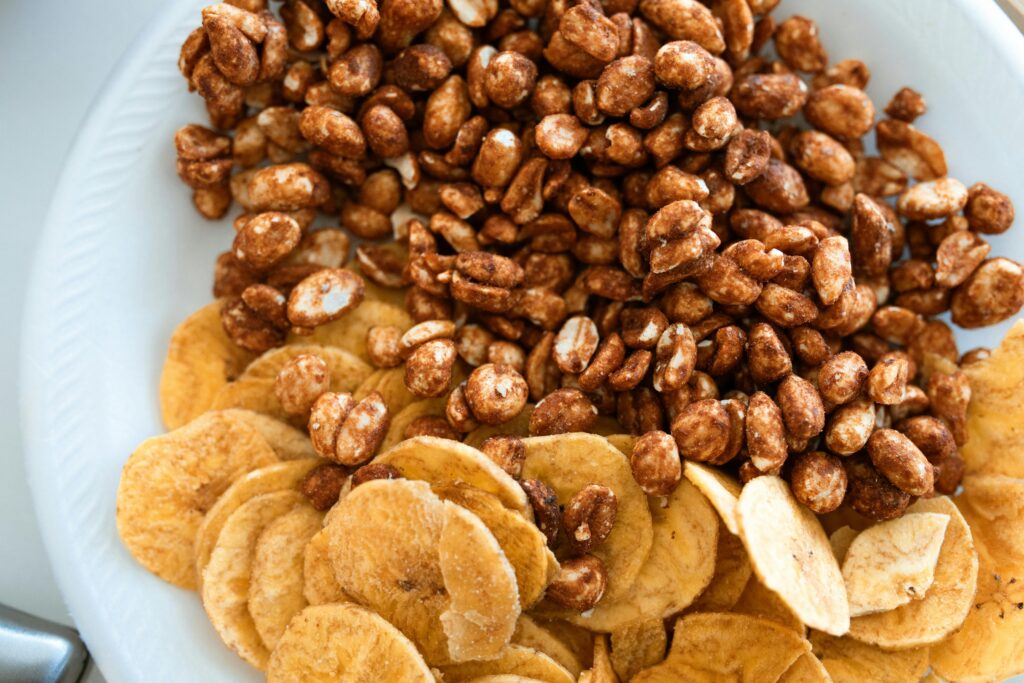
Delving deeper into the nutritional composition of banana chips, these golden pieces offer much more than just flavor. Rich in carbohydrates, banana chips also provide notable amounts of dietary fiber, which contributes to digestive health and a longer feeling of satiety. Additionally, they contain essential vitamins such as B6, which boost metabolism, and minerals such as potassium, which are important for maintaining proper heart function.
Despite their nutritional benefits, it is important to consume banana chips in moderation. Like many snacks, they can be rich in calories, especially when deep-fried or loaded with extra ingredients. Recognizing the importance of balanced snacking, incorporating banana chips into the overall diet ensures enjoyment of their delicious taste while keeping calorie intake in check. So, “how many calories are in banana chips?” Let’s explore this further in the upcoming sections, uncovering the mystery behind the calorie content of this popular snack.
How many calories are in banana chips?
Banana chips, a delicious snack loved around the world, come with varying calorie content depending on the serving size and preparation methods. On average, a one-ounce (28 g) serving of commercially prepared banana chips provides about 147 calories, but it is important to consider these factors for an accurate estimate. The calorie profile can be affected by the method of preparation – traditional frying increases the calorie count due to the added oil, while baked options can provide a slightly lower calorie option without compromising taste and texture.
Comparatively, banana chips exhibit a unique nutritional composition when put against popular snacks. Although they exceed the calorie count of some fresh fruits, they often offer a healthy alternative to traditional potato chips or candy bars. A one-cup (72 g) serving of banana chips provides approximately 374 calories, 24 grams of fat, 42 grams of carbohydrates, 25 grams of sugar, and 1.7 grams of protein. Understanding these aspects empowers individuals to make informed choices, while enjoying banana chips in limited quantities as part of a balanced diet.
Factors Affecting Caloric Content
Delving deeper into the world of banana chips and their calorie content, the method of preparation plays a vital role in determining their nutritional profile. The choice between fried and baked banana chips can have a significant impact on calorie levels. Fried banana chips, although crunchy and delicious, absorb more oil during the frying process, increasing their total calorie count. Baked banana chips, on the other hand, are a healthier option, as they require less oil and retain more of the natural nutrients present in the banana.
In addition to preparation methods, it is necessary to check for possible additives or toppings that may contribute to an increase in calorie content. For example, sweetened or candied banana chips may contain added sugars, increasing the total calorie load. Even seemingly innocent toppings like honey or chocolate drizzle can add extra calories. As consumers, being conscious of these factors allows us to make informed choices by selecting banana chips that are in line with our dietary preferences and health goals. So, the next time you grab a bag of banana chips, consider not only the crunchiness and flavor, but also the method of preparation and any additional ingredients that may affect their calorie content.
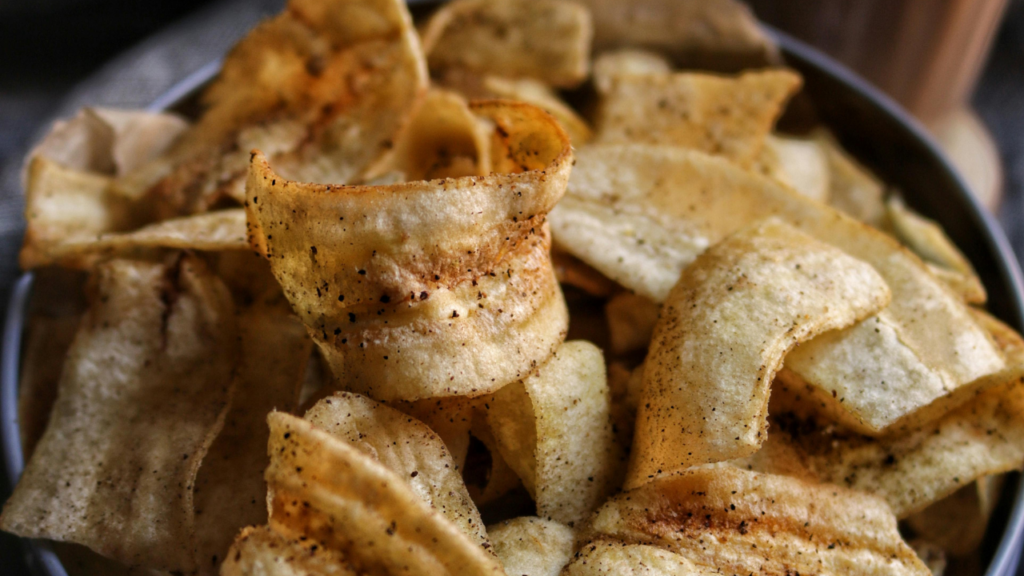
Healthy Alternatives and Tips
For health-conscious individuals who want to enjoy the crunchy taste of banana chips without worrying about excessive calorie intake, there are several careful alternatives and preparation methods to consider.
1. Opt for Baked Banana Chips:
Instead of the traditional deep-fried variety, opt for baked banana chips. Baking reduces the need for excessive oil, thereby reducing the total calorie content. This method preserves the natural sweetness of the banana while providing a satisfying crunch.
2. DIY Homemade Banana Chips:
Take control of the nutritional profile of your snack by making your own banana chips at home. Cut ripe bananas into pieces, place them on a baking sheet and bake at low temperature until they achieve the desired crispness. This way, you can eliminate additives and control the amount of oil and sweeteners used, resulting in a healthier breakfast.
3. Brain Part Control:
It’s easy to lose track of portions while enjoying the delicious crunchy taste of banana chips. To manage calorie intake, portion control is important. Consider pre-packaging single servings to avoid mindless snacking. This strategy not only helps in calorie management but also ensures that you savor each meal consciously.
Finally, satisfying banana chip cravings can be a guilt-free experience with these healthier alternatives and tips. By making informed choices and practicing moderation, you can enjoy the delicious taste of banana chips without compromising your commitment to a balanced and health-conscious lifestyle.
Frequently Asked Questions (FAQs)
1. Are all banana chips created equal in terms of calories?
Not all banana chips are equal when it comes to calories. The manufacturing process, ingredients used and portion sizes may vary between different brands. Reading nutrition labels and choosing wisely can help you make informed decisions based on your dietary preferences.
2. Can banana chips be part of a healthy diet?
While banana chips contain essential nutrients, moderation is key. It may be acceptable to include these as an occasional snack in a balanced diet. Choosing cooked or dehydrated versions and taking note of additional ingredients will contribute to a healthy choice.
3. Does the type of banana used affect the calorie content?
The type of banana used can affect the calorie content to some extent. Ripe bananas may contain more natural sugars, which affects overall calorie levels. However, the difference may not be significant, and the nutritional value remains relatively consistent.
4. How does the method of preparation affect the calorie level?
The method of preparation significantly affects the calorie content of banana chips. Traditional deep-frying involves more calories than baking or dehydrating. Choosing methods that use less oil can contribute to a lower-calorie breakfast.
5. Are there any health risks associated with regular consumption of banana chips?
If banana chips are high in unhealthy fats, added sugars or excessive sodium, regular consumption may pose health risks. Checking labels for these ingredients and controlling intake can help reduce potential risks.
In conclusion, understanding the calorie content of banana chips involves considering a variety of factors. Making informed choices, being mindful of portion sizes, and choosing healthy preparation methods can contribute to enjoying this snack as part of a balanced diet.
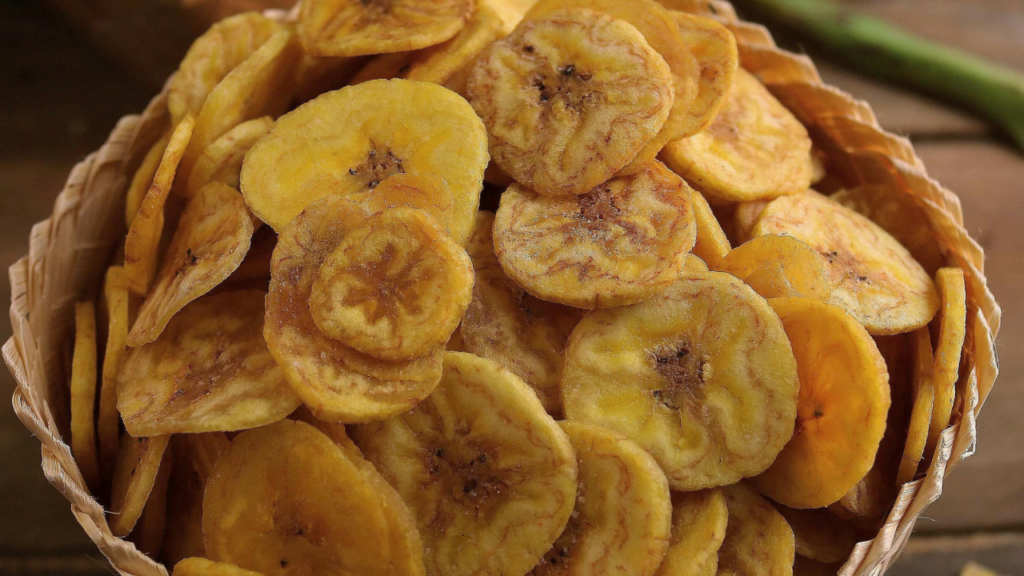
Conclusion
Finally, revealing the mystery behind the question, “How many calories are in banana chips?” Highlights the nutritional complexities of this beloved snack. We have studied the overall nutritional profile of banana chips in depth, with an emphasis on the rich amounts of fiber, vitamins and minerals. However, the central focus has been on calorie content, addressing variations influenced by factors such as serving size and preparation methods. Whether fried or baked, homemade or store-bought, understanding these nuances helps us make informed choices.
Like any snack, moderation is key. While banana chips can be a tasty addition to your snacking stockpile, it is essential to consume them in appropriate quantities. We’ve explored healthy alternatives and shared tips for those mindful of their calorie intake. It’s not just about calories; It’s about making choices that are in line with your overall health goals.
Dear readers, I encourage you to savor the crunchy taste of banana chips responsibly. Share your thoughts, experiences and questions in the comments below. Your participation is invaluable in fostering a community where we can learn and grow together. Let’s embark on this journey of snacking on enlightenment, making every meal a mindful and pleasurable experience.

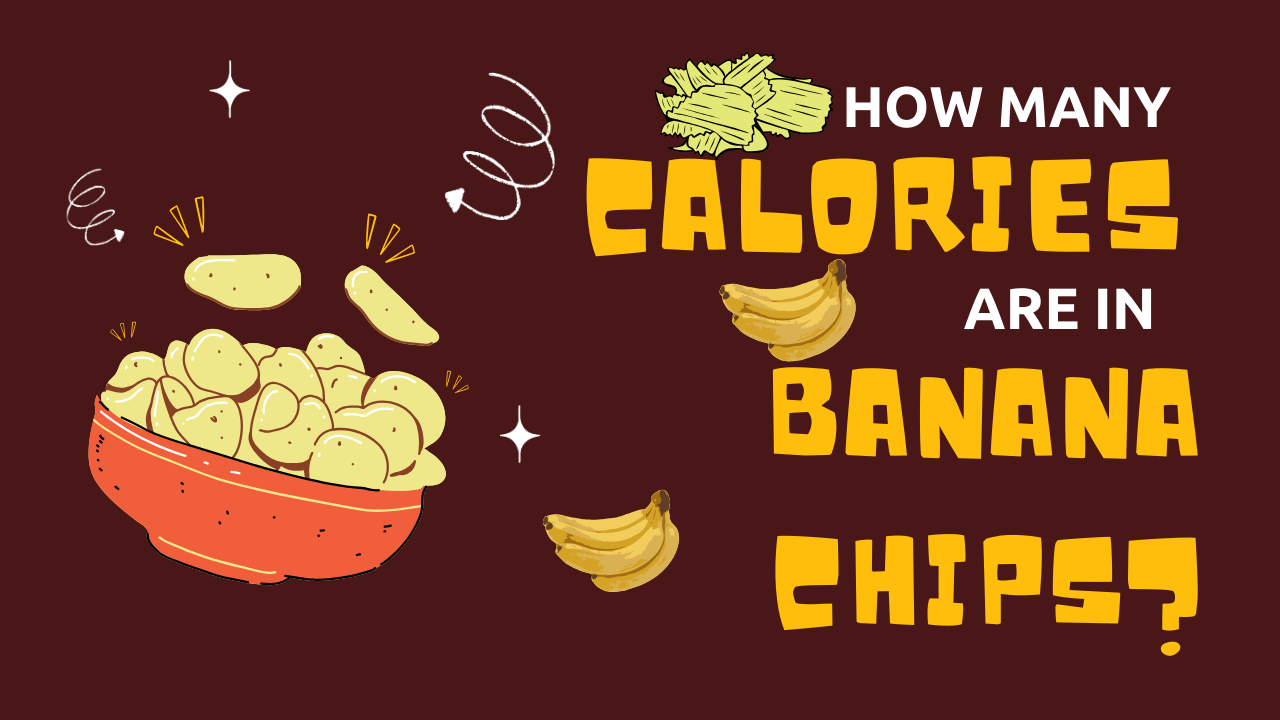

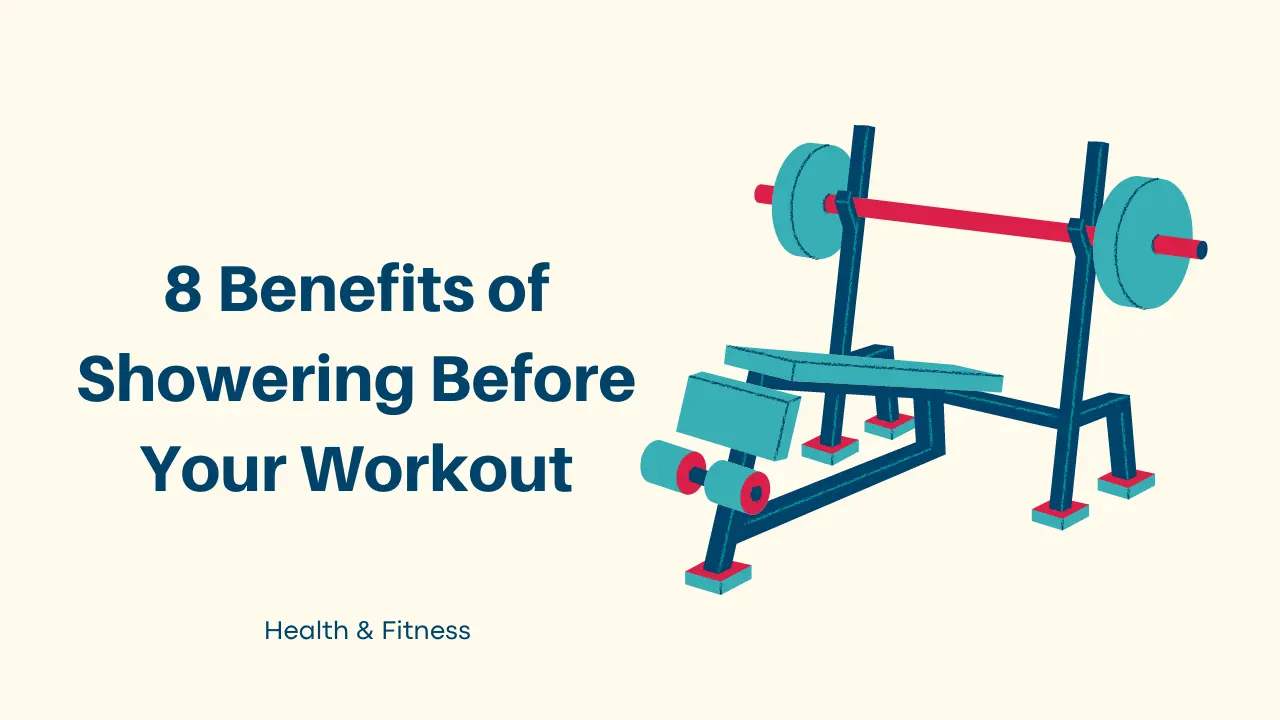

1 thought on “How Many Calories are in Banana Chips?”